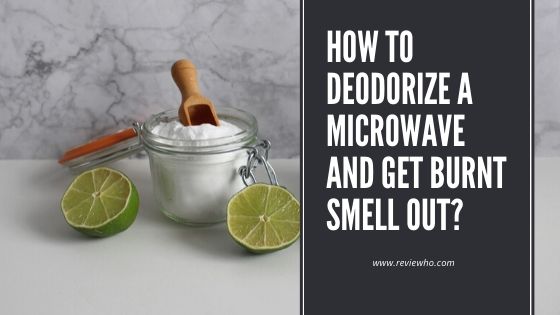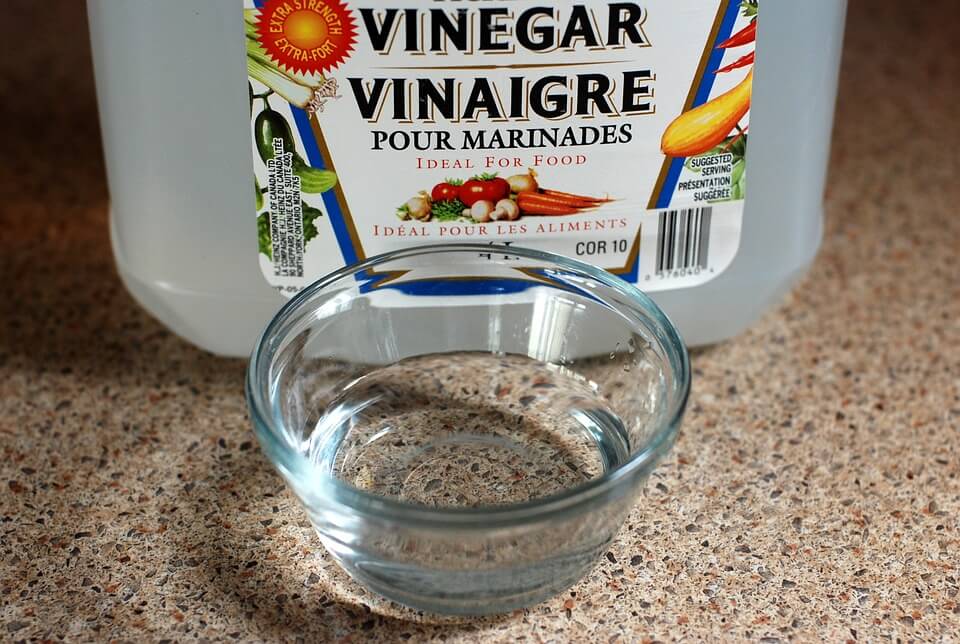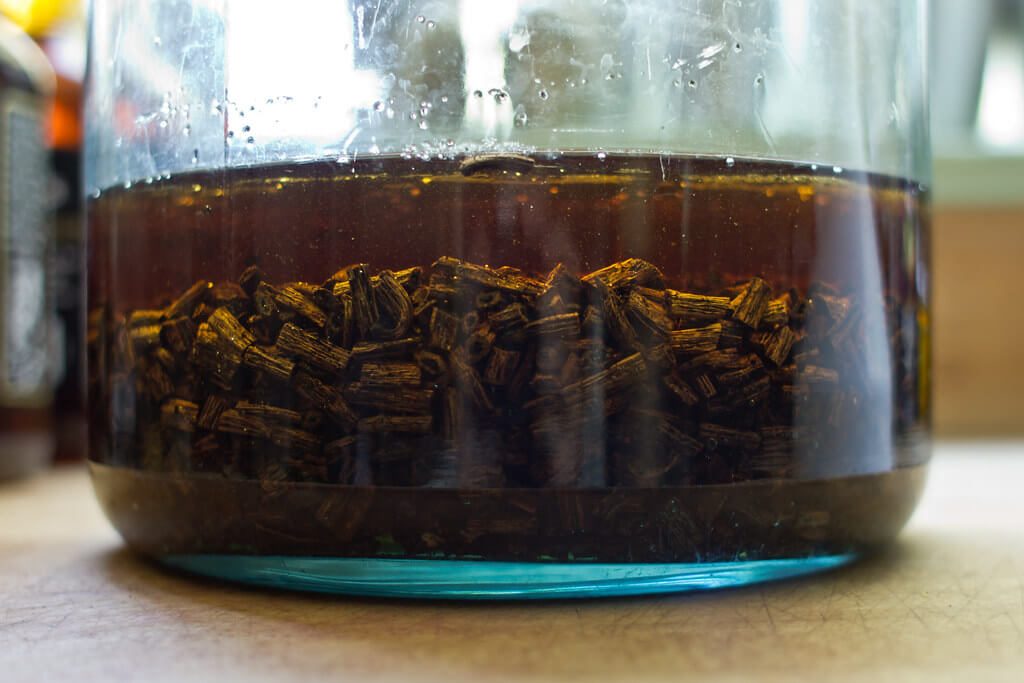Microwave ovens are indispensable parts of modern existence. We are so busy with our jobs and everything that we rarely cook food in the gas oven. Microwave oven, if not for cooking food, is used regularly to heat the edibles that we bring home as takeouts.
We often forget to notice the mess that has been created inside the oven from the grease that has spilled over, the gravy from the Chinese take-out, and so on. It is even more terrible when food burns inside the oven.
To get rid of the burning smell or the smell of grease etc., you must deodorize the microwave oven once in a while, if not regularly.
If you do not get rid of the bad smell, and forget to wipe the inside of the oven, eventually, the oven becomes dysfunctional. It is because the obnoxious smell pervades everything that you further heat or cook in the oven. It is needless to say that heating up or cooking food when your oven is dirty and smelly is extremely unhygienic as well.
What does Deodorizing mean and how should you execute it? Read below to know more!
What does Deodorizing Micro Oven Mean?
If you are wondering how to get rid of the burnt smell from your microwave oven, you have come to the right place! You need to deodorize it.
Sometimes, when we cook or heat the food inside the microwave oven, it so happens that the sauce may spill over, molten cheese may drop from the pizza pan and a lot of times, popcorn gets overcooked and burnt.
As a result of these mishaps, the microwave oven develops a disgusting smell.
Just like you put deodorants on your body to hide stinky smells, your microwave oven also needs something that will remove the smell.
Deodorizing a microwave oven means refreshing it after a cooking mishap has happened.
It is noteworthy that, you must, if not every day, clean up and deodorize it at least once a week in any case.
There are many ways you can deodorize your microwave oven, the most popular ones are described below.
Let’s take a closer look at each one;
-
Clean microwave with baking soda
Baking soda is perhaps the most popular method of deodorizing. If you want to know how to clean the microwave with baking soda, read further.
It is extremely easy to conduct and does not take much time.
All you have to do is to put two-three tablespoons of baking soda on a microwave-friendly container.
Put some water in it and mix it well. Then heat it up for three to five minutes.
The steam coming from the container should deodorize your microwave oven.
For better results, wipe the oven with the steaming water. If this does not help in getting rid of the burnt smell, try the next method.
Related:
-
How to clean the microwave with vinegar and water?
Some people say that white vinegar helps way more effectively than baking soda does in order to deodorize the microwave.
The method is pretty much the same; all you have to do is to use white vinegar instead of baking soda. Some people think that white vinegar works the best for getting rid of greasy stains and smells.
Put the vinegar solution inside a microwave container. Mix the solution with a little water and then heat it for quite some time.
The steam that comes out of the solution loosens up stubborn stains and afterward, you can easily wipe them off with the vinegar solution. To avoid stickiness, wipe the oven with normal water again.
-
Clean microwave with lemon juice
A lot of people prefer to use lemon juice to deodorize the microwave oven. Lemon juice has been considered the most effective to get rid of the burnt popcorn smell.
The next question arises about how you should go about it. The method is the same as the other two methods, only the agent is different.
Squeeze three-four lemons into the water. Put the whole thing in a microwave container. Put the container inside the oven and heat it for a while.
Afterward, let it cool inside the oven for a while. The steam will help in removing oily stains and you can use the lemon water to clean up the inner part.
Also, read: Can you Microwave Tupperware?
-
Using Vanilla Extract or Used Tea Bags
Many people prefer to use vanilla extract by mixing it up with water and boiling it.
However, be careful about the fact that vanilla extract itself has quite a strong smell. In that case, if you use used-up tea bags, it might be more soothing.
Teabags are good agents of deodorization but this process takes more time to be executed than the other processes.
But tea bags are indeed effective in canceling the smell if the smell is not too strong.
Usually, this method does not work if you have made a bigger mess inside the oven than usual.
-
Using Wooden Utensils
There is another method some people find effective, which is using wooden utensils like spatula or chopsticks.
You put two cups of water mixed with lemon juice or vanilla extract inside a microwave container. Then you place the wooden utensil inside the container.
Heat up the oven for two to three minutes with the container inside. Then leave the whole thing to cool for fifteen to twenty minutes. The smell will go off completely.
Frequently Asked Questions
1. Are there any commercial products I can use to deodorize my microwave? Or is it better to use natural ingredients?
Yes. There are commercial products that can help deodorize your microwave, getting rid of any unpleasant smell that might be in the microwave.
However, using a mixture of natural ingredients works best when deodorizing your microwave. The steps are quite simple to follow.
First, you need to clean your microwave properly. To do this properly, use water and soap and clean all parts of the microwave thoroughly. The second step is to mix water with baking soda. Place the mixture inside the microwave and heat for around two to three minutes. This will make sure that any bad smell is removed and the hard stains are cleaned.
The last step will add a better smell to the microwave. Add two teaspoons of coffee to half a cup of water. Heating the mixture for three minutes will spread the scent around the microwave and it will have a nice fresh smell.
2. Is it dangerous to use cleaning sprays to clean a microwave?
It is not dangerous to use a cleaning spray when cleaning a microwave.
However, this only applies if you rid the microwave of any residues that might be left after cleaning. When you use the microwave to heat food, or whatever you heat, you might get different results, which would include a foul smell on your food.
To avoid this completely, make sure to use safer and more thorough methods of cleaning, which is mostly natural mixtures.
Mix a cup with vinegar and water, half of each. Place the mixture inside the oven and heat for several minutes. This heating process will help remove all the stains, smells, or other gunk that might be hard to remove from the microwave.
Alternatively, you can choose to use several lemon slices with one and a half cups of water.
Use the sprays for other outside cleaning purposes but do not use the cleaning agents for cleaning inside. Most agents are corrosive.
3. How often should you replace your microwave?
If you clean and maintain your microwave properly, it should serve your kitchen for a period of up to seven years. If there are heavy usage and poor maintenance, it will serve you for a lesser period.
The durability of a microwave will depend on several factors, which also include the size of the family and the material heated in the microwave.
You can detect that your microwave needs cleaning by observing several things. For instance, you might notice that your microwave’s timing is off. Food might heat up too fast, or even too slow.
You might also note that the door is compromised, which is extremely dangerous. You should also check the keypad. If it does not function perfectly, it might affect the microwave’s functionality. You can replace the microwave even if it does not have any problems and is just old. At some point, replacement is more cost-effective than repair.
4. Is it safe to use bleach in a microwave?
Cleaning a microwave using bleach will not put you in actual danger. That being said, you should know that the exercise is completely pointless, as bleach will not get rid of the dirt in your microwave. The bleach agents you use will sterilize and kill bacteria and oxidize the stains inside your microwave.
However, this agent will corrode the inside of the microwave. Once you use the bleach, maybe heating it, the fumes will get inside the vents and will make sure to corrode any electronic parts, which, in turn, will cause additional danger to you.
If you have stains stuck inside the microwave, heat a bowl of water inside the microwave. Make sure that you can see the water boiling, the stains will come off automatically, and it will be much easier to clean the microwave using a dump cloth.
5. Can bacteria survive in a microwave?
A microwave creates radio wave energy when it is turned on when heating food. Once produced, the waves will hit the food inside the microwave. Since the microwave has a shiny reflective metal inside, the waves will bounce back and forth, hitting the food in the process. The food will then take in the waves, creating heat in the process.
Therefore, it is clear that food heats from the outside layer to the core, not the other way round. If you do not use the microwave properly, there might be spots where the bacteria will not survive.
The heat produced by the process described is responsible for the extermination of bacteria.
Making sure that you heat the food for the right amount of time will make sure that you kill all bacteria that might be present. Consider the shapes of the food, as well as the thickness of the layers.
6. How to clean greasy microwave doors?
A single heating or cooking process will leave your microwave greasy and with a bad smell. You need to know to avoid any kind of bleaching agent, as it will damage your microwave easily.
To clean greasy microwave doors, you need a sponge or soft cloth. Dip the cloth or sponge in water and dip it in a bit of baking soda. Use the sponge to clean the rubber gasket that is around the door.
For greasy windows, make a mixture of water and vinegar. Make sure that this mixture has half of each of the elements. Clean with a sponge dipped in the mixture and it will get rid of the greasy dirt immediately. After cleaning, rinse and wipe it dry.
You can add any other natural smells by cleaning with mixtures of natural ingredients such as water and lemon slices.
7. What happens if you do not clean your microwave?
It is important to clean your microwave thoroughly, daily. If possible, clean the microwave after each use.
However, if you do not clean your microwave, you will be putting yourself in danger. Since a microwave is warm, germs will survive and even thrive. Spills from food heated in the microwave might leave germs lurking around in the microwave. These spills can even grow bacteria.
When you leave the spills uncleaned from the microwave, you will be risking contamination of any new food that you heat in the microwave. Once you heat new food without cleaning the microwave, the spills will turn to vapor that will come in contact with your new food. You might be risking food poisoning by failing to clean your microwave.
8. How to clean a microwave filter?
Here is a comprehensive guide on how to clean your microwave grease filter with water.
Conclusion
There are many ways one can get rid of smells from the microwave oven. If anyone does not work for you, you can try all of them one after the other.
We guarantee, the smell will go off. The best way to maintain your precious microwave oven would be to clean it regularly so that the smell does not persist. It is really hard to deodorize it if there is a smell of week-old food.
Since these methods do not take much time to execute, you can regularly do it. If not regularly, try to wipe the inside of the oven at least thrice a week to keep it in a healthy condition.
Further Reading:
- Is Microwave Food Healthy?
- How To Clean Your Microwave Filter
- How To Get of Bad Kitchen Odors
- 5 Top Table Top Convection Oven
Feel free to share your observations with me in the comments section!
Also, if you find the information in this post to be useful, be sure to share this post with your friends on Facebook, Twitter, and Pinterest!







